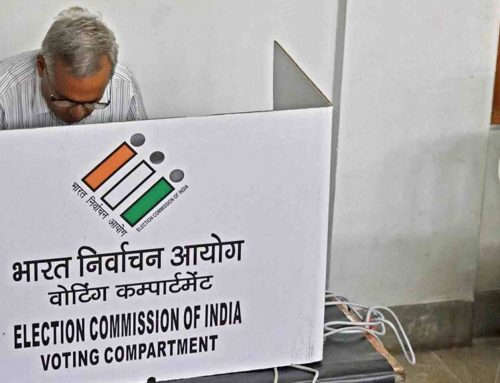– Abul Kalam Azad Sulthan, Advocate, High Court of Judicature at Madras and Madurai Bench of Madras High Court & Partner, Spicy Law Firm.
Introduction:
Indian Contract Act, 1872 deals with the pledge. Pledge is a kind of bailment. It is also called as ‘pawn’. If the good are bailed as security for payment of a loan or performance of a promise, it is considered a ‘pledge’. The person who is giving the goods as security for repayment of a loan is called ‘pledger’ or ‘pawner’. He is the bailer of goods. The person to whom the goods are pledged (given as security), is called the ‘pledgee’ or ‘pawnee’. Such person is the Bailee of the goods.
Definition:
Section 172 of the Indian Contract Act, 1872 defines pledge. According to this act, pledge is “the bailment of goods as security for payment of a debt or performance of a promise”. The pledge, pledger and pledgee are equivalent terms for pawn, pawner and pawnee respectively. The bailor in this case is called the pawner or pledger. The bailee in the pledge is called the pawnee or pledgee.
For example, if a farmer pledges his tractor as security for securing a loan from a bank, it is called pledge. The farmer is called the pledger or pawner. The Bank is called the pledgee or pawnee.
If a person X borrows Rs. 10000 from person Y and gives his gold chain with Y as security for the payment of the debt, the bailment of the gold chain is a pledge or pawn. X is the pledger or pawner and Y is the pledgee or pawnee.
Essential Elements of the Pledge:
According to Section 172 of the Indian Contract Act, 1872, the following conditions are to be satisfied to constitute a pledge.
- a) Delivery of goods,
- b) Such delivery of goods is as security for payment of debt and
- c) The subject matter must be movable property.
- a) Delivery of Goods: To constitute a pledge, there must be bailment of goods, that is the delivery of goods from one person (borrower in case of loan) to the another person (the person giving loan). Such delivery of the possession of the goods may be actual or constructive.
In the case of Reeves Vs. Copper (1933), the captain of the ship pledged the ownership of his chronometer with the owner of the ship (the employer). The Captain retained the chronometer himself and was allowed to use it for the purpose of the voyage. Later the captain pledged the ownership of the same chronometer again with another person. It was held by the jury that the first pledge was the valid one as that was the only pledge during which there was a constructive delivery of the chronometer.
In the case of Bank of Chittoor Ltd., Vs. P.Narasimhulu Naidu & Others (1965), the defendant was a Cinema theatre owner and he pledged his cinema projector and accessories with the Bank of Chittoor Limited. The Bank allowed the defendant to use the pledged cinema projector and accessories for filming the movies in his theater. The defendant, P. Narasimhulu Naidu sold the cinema projector and accessories (already pledged with the bank) to another person. It was held by the Court that there was a constructive delivery before the sale and hence the sake was subject to the existing pledge.
- ii) Security for payment of debt: The purpose of the bailment of the property is to keep the property or good delivered to the pledgee or pawnee as a security for the payment of a debt, or performance of a promise, to constitute a pledge. To say in simple words, the goods or property is delivered to another person (pawnee or pledgee) as security for the payment of the debt. The payment of the debt will be ensured by keeping the pledged property as security for repayment of this debt.
In the case of Bank of India Vs. Binod Steel Ltd, 1976, If there was a pledge of movable property to the bank, then such pledged property cannot be attached and sold by other creditors without first paying the claim of the bank with which the property is pledged.
iii) Movable Property: To constitute a pledge, there must be a movable property as the subject matter of pledge. It can include any movable property including goods, valuables, chattels and documents.
Distinction between Bailment and Pledge:
Bailment and Pledge have many common feature. In fact, pledge is a specific type of bailment. There must be a delivery of goods in both the cases of bailment and pledge. In the case of delivery of goods in bailment, the delivery of goods is for some specific purpose, but in the case of pledge, the delivery of goods is as a security for the repayment of a debt or fulfillment of a promise. Sections 148 to 171 of the Indian Contract Act, 1872 deal with the bailment, while the Sections 172 to 182 of the act deal with the pledge. A pledge can be for any purpose, but in the case of bailment, the delivery of goods is for some specific purpose. (Giving cloth to a tailor to stitch a shirt etc).
The Bailee of the goods can use the goods, but in the case of the pledge, the pledged goods shall not be used by the pawnee or pledgee. In case of the bailment, the bailee of the goods does not have any rights to sell the goods bailed to him, but in the case of a pledge, the pledgee or pawnee has a right to sell the pledged property if the pawner or pledger fails to redeem the pledged property within the due date (stipulated period). A bailee can have lien in the goods or property bailed only to the amount of the labour charge or fee for the services. But in case of a pledge, a pledgee can have lien if the payment of interest was not paid within due date (stipulated time).
Distinction between Pledge and Hypothecation:
There is no definition for ‘Hypothecation’ in the Indian Contract Act, 1872. It is a specific type of mortgage in which the possession of the property mortgaged is retained by the owner of the property. Mortgage means ‘to place or assign a property or goods as security to a mortgage’. In the case of hypothecation, the possession of the movable property is retained by the owner of the property who has mortgaged the said movable property and some of the rights over the mortgaged property are vested with the person to whom the said property is hypothecated.
There are few differences between a pledge and hypothecation. In the case of a pledge, there has to be a delivery or constructive delivery of the pledged property (subject matter) from one person to the another. But in the case of hypothecation, there is no need for the delivery of hypothecated property from the borrower to the lender.
In the case of a pledge, the subject matter (property or goods) is in the possession of the pledgee as a security to ensure the repayment of the debt, but in the case of hypothecation, the property need not be in the possession of the lender.
In the case of a pledge, pledge is a legal charge whereas hypothecation is an equitable charge. Hypothecation is a kind of pledge.
Bailment and pledge resemble each other in many ways and it is usually considered as one and the same. In case of bailment, goods are delivered to the bailee for some specific purpose (giving cloth to a tailor for stitching a shirt etc) and the property is not given as security. Whereas, in the case of pledge, the good are given to the pledgee as security to ensure repayment of the debt or performance of a promise. The rights and duties of the bailor and bailee in bailments are exactly same as the rights and duties of the pledger/pawner and pledgee/pawnee in pledge.
Rights of Pledgee :
Sections 173 to 176 deals about the rights of the pledgee.
Following are the rights of a pledgee.
- Right to retain the pledged goods.
- Right to recover extraordinary expenses from the pledger.
- Right to sue and sell the pledged property.
Right of retainer (Right to retain the pledged goods): Sections 173 and 174 confers right on the pledgee to retain the pledged goods. Section 173 reads as follows:
Pawnee’s right of retainer (Section 173): “The pawnee may retain the goods pledged, not only for the payment of the debt or the performance of the promise, but for the interests of the debt, and all necessary expenses incurred by him in respect of the possession or for the preservation of the goods pledged”.
Section 174 in The Indian Contract Act, 1872
- Pawnee not to retain for debt or promise other than that for which goods pledged. Presumption in case of subsequent advances.—The pawnee shall not, in the absence of a contract to that effect, retain the goods pledged for any debt or promise other than the debt or promise for which they are pledged; but such contract, in the absence of anything to the contrary, shall be presumed in regard to subsequent advances made by the pawnee. —The pawnee shall not, in the absence of a contract to that effect, retain the goods pledged for any debt or promise other than the debt or promise for which they are pledged; but such contract, in the absence of anything to the contrary, shall be presumed in regard to subsequent advances made by the pawnee.”
To say in simple words, Section 173 of the Indian Contract Act confers the right to the pawnee, to retain the goods pledged not alone for the payment of debt or performance of the promise, but also for the interest of the debt and all other necessary expenses incurred by the pawnee in respect of the possession of the pledged property and/or for the preservation of the pledged property. But the pawnee has no right to retain any other goods other than the goods pledged. It is also called as “pawnee’s right of particular lien”.
Smt. Aratibala Mohanty vs State Bank Of India And Ors. on 6 April, 1990
In this case, the petitioner Smt. Aratibala Mohanty had taken the loan from the State of Bank of India based on pledge agreement and pledges gold ornaments to the bank. Here is the excerpts from the judgment in this case:” On account of order of attachment from the Court and seizure of the property, the Bank which the obligation to deliver back the possession of the goods when the pawnor exercises her right of redemption, has not discharged that obligation pursuant to Annexures 1 and 2 and has expressed its inability to do so under Annexure 3. The petitioner herself got the order of attachment vacated by moving the Sessions Judge on 23-9-1981 but thereafter never intimated the Bank about the same, nor wanted to exercise her right to redeem the pledged articles by satisfying the debt. The petitioner, on the other hand, wanted to rely upon the Bank’s letter that she would be intimated about the release of the goods later. The Bank has taken the stand that it was unaware of the order of vacation of attachment by the Sessions Judge and since the petitioner herself got the order of attachment vacated, we think, it was the petitioner’s duty to intimate the Bank about the vacation order and exercise her right of redemption. Not having done that the petitioner cannot claim any equity in her favour and the Bank would be fully justified in claiming interest for the period subsequent to the date of vacation of the order of attachment on 23-9-1981 till the amount of debt is actually paid and the goods are redeemed. But so far as the period from 2-4-1976 till 23-9-1981 is concerned, the question that arises for our consideration is whether for that period also the Bank would be justified in claiming interest even though the pawnor wanted to satisfy the debt and take delivery of the goods pledged and the Bank as the pawnee was not in a position to deliver back the goods on account of the seizure made. The Bank as the pawnee having refused to perform its obligation of redelivering the goods on debts being satisfied cannot claim any interest for the said period and the observations of their Lordships in Lallan Prasad’s case AIR 1967 SC 1322 (supra) to the effect that if the pawnee is not in a position to re-deliver the goods he cannot have both the payment of debt and also the goods, would apply. We would, therefore, hold that the Bank as pawnee will not be entitled to charge any interest on the principal amount for the period 2-4-1976, the date on which the petitioner wanted release of the gold pledged by satisfying the debt and the Bank expressed its inability till 22-9-1981 when the Sessions Judge vacated the ad interim order of attachment, whereafter the Bank was in a position to deliver back the possession of the goods on petitioner satisfying the debts in question pursuant to the pledge agreement.”
To say in simple words, because of the order of attachment from the court and seizure of the gold ornament, the State Bank of India who had the obligation to deliver back the possession of the gold ornaments (pledged goods) when the petitioner exercised her right of redemption, had not fulfilled the obligation. The Bank did not discharge that obligation. The Division bench of the Orissa High Court held that the bank as the pawnee who has the obligation to deliver the pledged goods had refused to perform the obligation of delivering back the pledged gold ornaments on debts being satisfied by the pledger (petitioner in this case), and hence the bank cannot claim any interest for the said period.
Right to recover extraordinary expenses:
Section 175 of the Indian Contract Act confers the right on pawnee to recover extraordinary expenses from the pawnor.
Section 175 runs as follows:
“The pawnee is entitled to receive from the pawnor extraordinary expenses incurred by him for the preservation of the goods pledged”.
Example: If the pawnee has been delivered some gold ornaments and if he has to keep it in a bank locker for the safety of the pledged gold ornaments, he may recover the charges/expenses he paid for the locker. If he spends some amount for insuring the pledged goods, he can recover such expenses from the pawnor.
Haridas Mundra vs National And Grindlays Bank Ltd. on 31 July, 1962
In the words of R Bachawat, “In construing this section too much importance should not he given to the semicolon in the first paragraph. In a case where the pawnor makes default, tne pawnee has three rights: (i) he may bring a suit against the pawnor upon the debt or promise, and (ii) he may retain the pawn as a collateral security, or (iii) he may sell it on giving the pawnor reasonable notice of the sale. The right to retain the pawn and the right to sell It are alternative and not concurrent rights. While the pawnee retains, he does not sell; and when he sells he does not retain. But the pawnee has the right to sue on the debt or the promise concurrently with his right to retain the pawn or to sell it. The retention of the pawn does not exclude this right of suit, since the pawn is a collateral security only. Nor does the sale of the pawn destroy this right; the pawnor is still liable on the original promise to pay the balance due.”.
Right to sue and sell the pledged goods:
Section 176 confers the right on pawnee to sell the pledged goods and right to sue the pawnor, in case if there is any default made by the pawnor.
Section 176 reads as follows: ” Pawnee’s right where pawnor makes default.—If the pawnor makes default in payment of the debt, or performance; at the stipulated time or the promise, in respect of which the goods were pledged, the pawnee may bring a suit against the pawnor upon the debt or promise, and retain the goods pledged as a collateral security; or he may sell the thing pledged, on giving the pawnor reasonable notice of the sale. —If the pawnor makes default in payment of the debt, or performance; at the stipulated time or the promise, in respect of which the goods were pledged, the pawnee may bring a suit against the pawnor upon the debt or promise, and retain the goods pledged as a collateral security; or he may sell the thing pledged, on giving the pawnor reasonable notice of the sale.” If the proceeds of such sale are less than the amount due in respect of the debt or promise, the pawnor is still liable to pay the balance. If the proceeds of the sale are greater than the amount so due, the pawnee shall pay over the surplus to the pawnor.
This Section 176 confers on the pawnee, the following rights, in case of pawnor’s default in performance of his promise or default in repayment of the debt.
- i) The pawnee may file a suit against the pawnor over the debt or promise, and he may retain the pledged goods as a collateral security, or
- ii) The pawnee may sell the property pledged, on giving the pawnor reasonable notice about the sale.
To say in simple words, if the pawnor makes some default while repaying the debt or there was a default in case of performance of the promise in respect of which the goods were pledged, the pawnee may sue the pawnor or sell the pledged goods after giving reasonable notice to the pawnor.
In the case of Bank Of Bihar vs State Of Bihar & Ors on 1 April, 1971, it was held by A. Grover, J., that the pledgee has a right to be paid in priority to third parties who are unsecured creditors of the pledge.
Duties of the Pawnee:
The duties of the pawnee are similar to that of bailee in the case of bailment. The duties of the pawnee are as follows:
- i) The Pawnee should take care of the pledged goods as a reasonable and prudent man .
- ii) The pawnee must not make unauthorized use of the pledged goods.
iii) The pawnee must not mix the pledged goods with his own goods without the consent of the pawnor who pledged the goods.
- iv) The pawnee has a duty to return the pledged goods on repayment of the amount due (debt) and/or on performance of the promise for which the goods were pledged as security.
- v) The pawnee must act in conformity with terms and conditions of the agreement or contract of pledge or pawn.
Rights of the pawnor: Section 177 deals with the rights of the pawnor. It reads as follows: “Defaulting pawnor’s right to redeem.—If a time is stipulated for the payment of the debt, or performance of the promise, for which the pledge is made, and the pawnor makes default in payment of the debt or performance of the promise at the stipulated time, he may redeem the goods pledged at any subsequent time before the actual sale of them1, but he must, in that case, pay, in addition, any expenses which have arisen from his default.”
According to Section 177, the pawnor has the following rights:
- The pawnor has the right to redeem (to get back) the pledged goods. This right is called the right of redemption by the pawnor.
- The pawnor has the right to insist upon the pawnee for preserving and maintaining the pledged goods.
Duties of the pawnor:
- The pawnor must perform the obligation as set out in the contract of pledge.
- The pawnor should pay the extraordinary expenses incurred by the pawnee to preserve and maintain the pledged goods.
Pledge by Non-Owners:
In general, only the real owner of the goods or movable property can create a legally valid pledge. It is the general rule. This rule is based on a latin maxim “Nemo dat quod non habet”. This maxim means “No one can deliver what he does not have”. This principle is to protect the proprietary interest of the owner/individual. To say in other words, a person who has a valid title over the goods or movable property, that is the owner of the goods alone can create a valid pledge. However there are some exceptions to this general rule.
There are few exceptional cases in which a non-owner can create a valid pledge. Those are:
- i) Pledge by Mercantile Agent
- ii) Pledge by a person in possession of goods under voidable contract
iii) Pledge by a co-owner
- iv) Pledge by a person having limited interest
- v) Pledge by a seller in possession of goods after sale; and
- vi) Pledge by a buyer in possession of goods.
- i) Pledge by Mercantile Agent: Section 178 of the Indian Contract Act, 1872 deals with the pledge by mercantile agent. It reads as follows: ” Pledge by mercantile agent.—Where a mercantile agent is, with the consent of the owner, in possession of goods or the document of title to goods, any pledge made by him, when acting in the ordinary course of business of a mercantile agent, shall be as valid as if he were expressly authorised by the owner of the goods to make the same; provided that the pawnee acts in good faith and has not at the time of the pledge notice that the pawnor has not authority to pledge. Explanation.—In this section, the expressions ‘mercantile agent’ and ‘documents of title’ shall have the meanings assigned to them in the Indian Sale of Goods Act, 1930 (3 of 1930). “
“A mercantile agent is a person, who by virtue of customary trade practice, is authorised to sell or buy goods belonging to others. He may be entrusted with the possession of the goods or title deeds. Therefore, any pledge made by him is valid. ”
- ii) Pledge by a person in possession of goods under voidable contract: Section 178A of the Indian Contract Act, 1872 deals with the pledge by person in possession of goods under voidable contract. It reads as follows:
” Pledge by person in possession under voidable contract.—When the pawnor has obtained possession of the goods pledged by him under a contract voidable under section 19 or section 19A, but the contract has not been rescinded at the time of the pledge, the pawnee acquires a good title to the goods, provided he acts in good faith and without notice of the pawnor’s defect of title.”
Pledge by such person is valid, if,
- a) the contract has not been rescinded before the contract of pledge;
- b) the pawnee acts in good faith; and
- c) the pawnee has no notice as to the pawnor’s defective title.
iii) Pledge by Co-owner:
A co-owner, who is in possession of the goods, with the consent of the other co-owner/owners can pledge such goods in possession.
- iv) Pledge by a person having limited interest:
Section 179 deals with the pledge by a person having limited interest. It reads as follows: “Where a person pledges goods in which he has only a limited interest, the pledge is valid to the extent of his interest”.
To say in simple words, if a person has only a limited interest in the goods, he can pledge the goods to the extent of his interest.
For example, X gives a piece of cloth to Y, a tailor for stitching a shirt. The stitching charge is Rs. 200 and if X fails to pay the stitching charge, Y can have particular lien over the shirt to the extent of Rs.200. To say in other words, Y has limited interest in the shirt. If Y pledges the shirt to person Z for Rs. 500, the pledge is valid to the extent of Rs.200 only (The limited interest of the Y). If X pays Rs.200 to Z, Z has the obligation to return the shirt to X.
- v) Pledge by a seller in possession of goods after sale:
A seller who has the possession of the goods already sold, is no more the owner of the goods and cannot pledge. However, such pledge by the previous owner of the goods is valid, if the pledgee/pawnee had acted in good faith and not aware of the previous sale.
- vi) Pledge by a buyer in possession of goods:
A buyer who is in possession of the goods before payment of the price in full, pledges such goods, then it is considered as valid pledge, if
- i) The pawnee acts in goods faith; and
- ii) The pawnee is not aware of the pawners defective title.
Works Cited – Bibliography
Chris Turner, Virginia Birch: Key Facts: Contract Law Second Edition
Mulla: The Indian Contract Act
Avtar Singh: Contract and Special Relief
- Kesava Rao: Contract 1I: Cases and Materials
Pollock & Mulla: Indian Contract and Special Relief Acts (2 Vols)
H.K.Saharay: Dutt on Contract
Sandeep Bhalla: Digest of Indian Contract Act, 1872 (1991-2010)
Akhileshwar Pathak: Law Relating To Special Contracts-Contracts Of Bailment, Pledge, Hypothecation, Indemnity And Guarantee
Legal Risk and Compliance practical manual
Contract of bailment: Delhi University Virtual Learning Environment
Charles Colin Macrae: The Indian Contract Act, Act IX of 1872: With a Commentary, Critical, Explanatory, and Illustrative
– This article was published as part of coursework for the NUJS MA in Business Laws course.







This is my first time pay a quick visit at here and i am genuinely happy to read everthing
at single place.